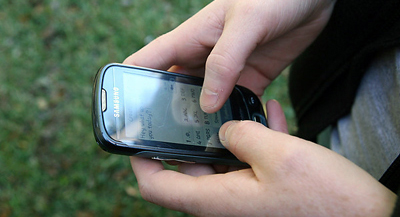
 COLUMBIA—State agencies are reaching out to Catholic schools, parishes and youth groups in an effort to keep children safe.
COLUMBIA—State agencies are reaching out to Catholic schools, parishes and youth groups in an effort to keep children safe.
The S.C. Attorney General’s office and the S.C. Internet Crimes Against Children Task Force are waging war against cyberspace dangers. As part of their campaign, they are offering free internet safety classes.
They have classes for adults and children, and with 52 trained affiliate members, someone is always available for a presentation, said Patti Fowler, the state’s internet safety education coordinator.
Fowler said her agency has received an overwhelmingly positive response from the public schools.
“We are also interested in covering private schools and church youth groups,” she said.
Bonnie Sigers, safe environment manager for the Diocese of Charleston’s Office of Child Protection Services, said she is interested to see how they can work together.
Sigers said her office is developing a policy on how schools, youth groups and parishes should handle social networking. The diocese has a responsibility to parents to put in best practices for a safe environment in all aspects of parish and school related activities, Sigers said.
Some of the leading recommendations from Fowler are for parents to be super vigilant and aware of what their children are doing online, and for youth to think before they post.
One of the biggest misconceptions is that postings can be anonymous, or that a photo will be seen by just one person, Fowler said.
She said they had a case where a predator tracked down a girl based on one photo. The teen was in her cheerleading uniform, which gave the predator the name of the school. From there, he accessed the schedule for afterschool activities and started stalking her at practices and games.
In this case, the man was arrested and the girl unharmed. Not all are so lucky.
Many documented cases exist of teenagers committing suicide after becoming the target of cyberbullies, such as the girl whose friends and classmates turned on her following a bad breakup with a boyfriend, or the boy who was taunted relentlessly over rumors that he was homosexual. Fowler said it is one of the reasons parents should keep tabs on their children’s pages.
“We’re definitely seeing that cyberbullying can take a toll on a child’s emotional well-being,” she said, adding that perpetrators can be charged with harassment or stalking.
Another problem among middle-schoolers is sending racy texts and photos to the person they are dating.
Fowler said youth are impulsive and naturally trusting. She can’t stress strongly enough that there is no privacy in cyberspace.
Ask teens to think: Do you really want the whole football team to see that photo? Everyone in the band? How about that one girl who is always so mean? Don’t do it. It will get out.
Fowler added that it is illegal to forward explicit photos, and people can be charged with unlawful communication or sexual exploitation of a minor.
Ultimately, she said, parents cannot be hands-off when it comes to their child’s online life. She compared cyberspace to dropping a child off unsupervised in the middle of New York’s Central Park. “The internet is just as dangerous,” she said.
Parents should review their children’s pictures, know their passwords, and install monitoring and filtering software.
“There’s nothing that can take the place of parenting your child’s online life, and be diligent in that,” she stressed.
For free Internet safety classes, contact Patti Fowler at (803) 734-4098 or pfowler@scag.gov.
